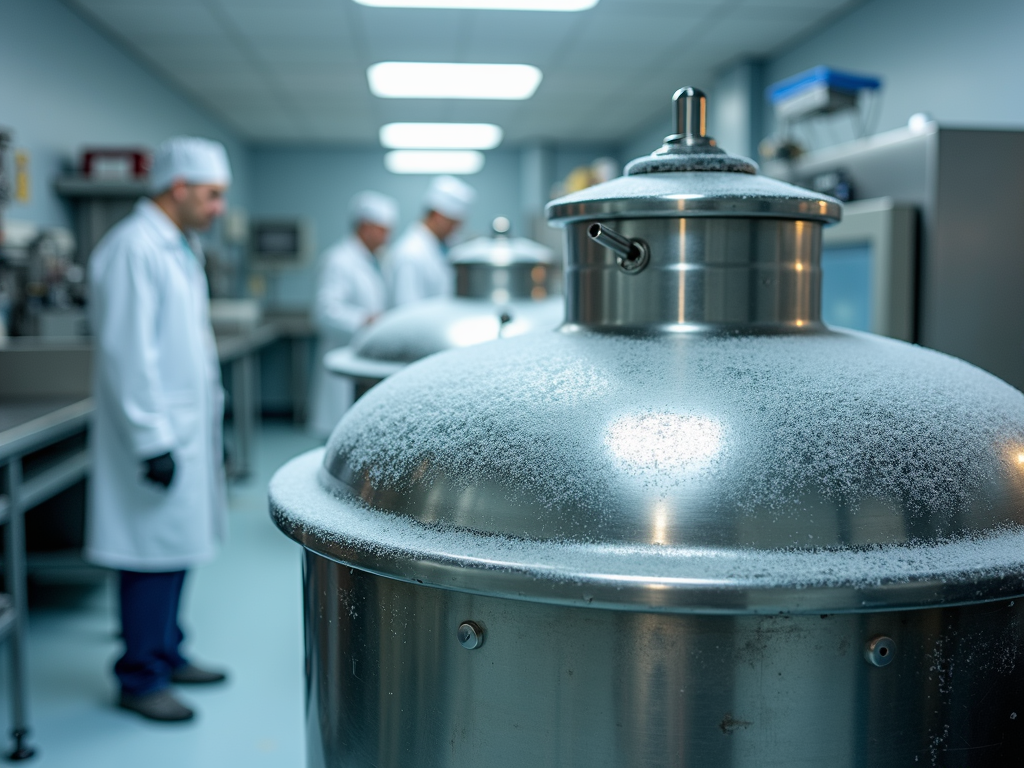Fertility Preservation for Cancer Patients: What to Expect
April 12, 2025, 7:53 a.m.
Fertility preservation gives cancer patients a chance to have children after treatment. This article, Fertility Preservation for Cancer Patients: What to Expect, explains the options and steps involved. It’s a hopeful guide for anyone facing this tough choice.
What Is Fertility Preservation?
Fertility preservation means taking steps to protect your ability to have kids later. Cancer treatments like chemotherapy, radiation, or surgery can harm your reproductive organs. This can lead to infertility, which is the inability to conceive. For many, saving their fertility is a big deal.
Young adults often face this issue. A cancer diagnosis is hard enough without worrying about future family plans. That’s where fertility preservation comes in. It offers hope and options before treatment starts.

Fertility Preservation Options
There are several ways to preserve fertility. The right choice depends on your age, cancer type, and treatment plan. Here’s a breakdown:
- Egg Freezing: Women can freeze their eggs before treatment. Doctors use hormones to help your ovaries make more eggs. Then, they collect and freeze them. It takes about two weeks. Check out A Guide to Egg Freezing: What You Need to Know for more details.
- Embryo Freezing: This is like egg freezing, but the eggs are fertilized with sperm first. It’s great if you have a partner or donor.
- Ovarian Tissue Freezing: Doctors remove and freeze part of your ovary. Later, they can put it back. It’s still experimental but promising.
- Sperm Banking: Men collect sperm, which is frozen for later use. It’s quick and easy, often done in a few days.

When to Act
Timing matters a lot. You should ideally preserve your fertility before treatment starts. Chemotherapy and radiation can damage eggs, sperm, or reproductive organs right away. The sooner you act, the better your chances.
Sarah, a 28-year-old with breast cancer, faced this choice. Her doctor warned her about chemotherapy’s risks to fertility. She chose egg freezing. It was tough—daily shots and doctor visits—but it gave her peace of mind. Today, she’s cancer-free and hopeful about starting a family.

The Emotional Side
A cancer diagnosis flips your world upside down. Adding fertility worries can feel like too much. Patients often feel scared, sad, or even hopeful. Support from doctors, family, or friends makes a big difference.
John, a 35-year-old with testicular cancer, knows this well. He worried he’d never be a dad. Banking his sperm before treatment felt strange, but it gave him control. Now, he’s in remission and glad he took that step.

Common Questions
Patients often ask about costs, success rates, and treatment delays. Let’s tackle these:
- Cost: Fertility preservation can be pricey—thousands of dollars. Insurance might not cover it, but some programs offer help. Ask your doctor about grants.
- Success: It’s not a sure thing. Success depends on egg or sperm quality and your health later. Still, it’s a chance worth taking for many.
- Timing with Treatment: Doctors work together to avoid delays. Fertility steps can often fit into your cancer plan.

The Process Explained
Here’s what to expect with egg freezing for women:
- Meeting: You talk to a fertility expert to plan.
- Hormones: You take shots for 10-14 days to grow eggs. You’ll visit for checkups.
- Collection: Doctors retrieve the eggs with a quick procedure. They freeze them after.
For men, sperm banking is simpler:
- Meeting: You see a specialist.
- Collection: You give a sample—or a few. They freeze it fast.

Tips to Get Started
- Talk to your cancer doctor right after diagnosis.
- Find a fertility expert who knows cancer cases.
- Get support—friends, family, or a counselor can help.
Fertility Preservation During Chemotherapy
Starting chemo before preserving fertility? It’s tricky but not impossible. Some options, like ovarian tissue freezing, might work during treatment. Talk to your team—they’ll weigh the risks and benefits.
Comparing Methods
Here’s a quick look at your options:
| Method | How It Works | Pros | Cons |
|---|---|---|---|
| Egg Freezing | Freeze eggs before treatment | Works for single women | Needs time and hormones |
| Embryo Freezing | Freeze fertilized eggs | Higher success rate | Needs a partner or donor |
| Ovarian Tissue | Freeze ovary tissue | Quick, no hormones | Still experimental |
| Sperm Banking | Freeze sperm | Fast and easy | Needs a few samples |

What’s Next?
New ideas are coming. Scientists are testing ways to grow eggs outside the body or improve tissue transplants. These aren’t ready yet, but they could help more people soon.
Wrapping Up
Fertility preservation offers cancer patients a shot at parenthood. It’s not easy, but it’s worth exploring. With the right info and support, you can decide what’s best for you. Hope drives this journey—hold onto it.